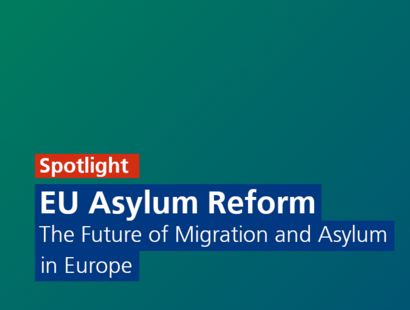China’s international development cooperation. History, Development Finance Apparatus, and Case Studies from Africa
The People’s Republic of China (PRC) has abandoned its traditional foreign policy restraint and is playing an active role in shaping the global order of the 21st century. Our most recent analysis shines a spotlight on these changes, concentrating explicitly on China's international development cooperation. The main focus of the analysis is to illustrate how Beijing has become one of the largest contributors to development assistance and how the importance of development finance as a foreign policy tool has increased significantly since Xi Jinping came to power in 2012.
More and more, China is promoting its development and modernisation model and its approach to international relations as a “better” alternative for developing countries. Between 2007 and 2020, China lent more than twice as much to Sub-Saharan African countries as the US, UK, Japan, and Germany combined for infrastructure projects. The reason China’s development cooperation system is opaque and difficult to decipher has less to do with deliberate secrecy and more with the highly fragmented nature of China’s bureaucracy. China is not a monolith: While the Chinese government incentivises provinces, state-owned enterprise, and non-state actors to engage in international development cooperation activities, there is no coordinated approach between different stakeholders, who even sometimes end up competing against each other.
Against this backdrop, the study by the Asia-Pacific Department of the Friedrich-Ebert Stiftung provides a comprehensive and in-depth analysis of China’s highly complex aid and development financing bureaucracy and highlights the differences in the understanding of development between China and the West.
The analysis, written by Dr. Marina Rudyak shows that China is by no means a new actor and has used development cooperation as a strategic tool since the 1950s. She presents the development history of Chinese development financing to the African continent and illustrates how Beijing is no longer simply building roads but also offering solutions for digital and telecommunication infrastructures or smart cities. In many places, China has stepped into gaps left by the West or not addressed at all in the first place.
Through three sector-specific case studies, Dr. Rudyak addresses China’s cooperation with Africa in the areas of health, labour conditions and trade unionism in Chinese-financed infrastructure projects and smart city projects in select countries on the continent. In addition to her in-depth analysis, she succeeds in laying the foundations for strategic empathy — not to be confused with sympathy — i.e., understanding the history, geography, and motives behind China’s actions. For her, strategic empathy is the foundation of effective foreign policy in current times. Dr Rudyak concludes her analysis with both sector-specific and overarching recommendations on how the European Union and Germany should respond to China’s growing footprint in Africa.
This report is part of a FES publication series, which examines Beijing’s strategy in a range of different global policy fields. The overarching theme of the series is the future of multilateralism in light of China’s rise to world power and the growing competition over the establishment of values and norms. It seeks to address questions such as: How can we go about initiating a constructive process of political negotiation between Europe and China on the regulatory framework for global governance? In which areas is there potential for more coordination and cooperation with China? And, in contrast, where should Europe be taking countermeasures and conducting its own groundwork, for example to ensure that newly industrialized and developing countries see it as a reliable partner?
